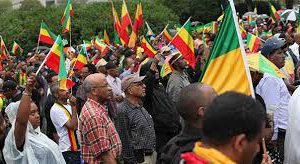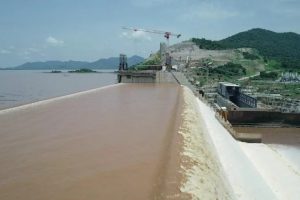Ethiopians and Ethiopian descent live in many countries in all corners of the world. There were many good and bad reasons for the Ethiopians to leave their beloved nation and live abroad for years and decades. Like citizens of many countries that flee to economically better of countries like the west in search of better living conditions. Others also seek asylum in many countries due to the political problems in the past.
Wherever they are Ethiopians demonstrate that they never forget their nation both at times of good and adversity. For instance, recently Ethiopians are doing their level best to defend their nation from the concerted efforts of some countries to frustrate their nation from pursuing the process of change, sabotage development projects like the Grand Ethiopian Renaissance Dam (GERD) and meddle in the internal affairs of the nation with the pretext of safeguarding human rights in connection with the governments law enforcement actions in Tigray State.
Djibouti is one of the countries where Ethiopians live in large and strong communities. Strategically located as an inlet and out let of Ethiopia’s main import and export items, Djibouti is like the second home of many Ethiopians. As a result, tens of thousands of Ethiopians are currently making a living in Djibouti in various sectors.
Like all other compatriots in the diaspora, Ethiopians in Djibouti also have carried out activities to respond to the current national issues underway at home. Recently they have attended a meeting organized by Embassy in Djibouti and raised many current issues that require their active participation. According to the Ministry of Foreign Affairs the meeting involved religious leaders, representatives of the FDRE government institutions, embassy staff and other Ethiopians and people of Ethiopian descent on May 27, 2013.
In Djibouti, FDRE Special Envoy and Ambassador Extraordinary and Plenipotentiary, Berhanu Tsegaye, explained about the ongoing process of transformation, law enforcement in the Tigray region, the Grand Ethiopian Renaissance Dam (GERD), the sixth national election, the Ethio-Sudan border and US travel bans. The Ambassador outlined the political and economic factors that led to the country’s transformation, the achievements and challenges of the transformation. He said the problems that have been looming for centuries in the country since its inception have played a significant role.
He said the ongoing law enforcement operation in Tigray State has been coerced by the government, the TPLF has been engaged in illegal activities to obstruct the country’s transformation, and the federal government has been involved in law enforcement activities since the attack. He noted that the TPLF is currently a terrorist group without a formal army.
He said 4.5 million people in the first round and 2.7 million people in the second round were provided with humanitarian assistance in the state, of which 70 percent was covered by the government. He said the government has repatriated more than one million displaced people.
He said government officials in collaboration with the Ethiopian Human Rights Commission and the United Nations Commission on Human Rights have been investigating allegations of human rights abuses in the region.
Regarding the Grand Ethiopian Renaissance Dam, the Ambassador said Ethiopia will adhere to the principle of equitable and rational use of the Nile River and the second round of water filling will take place soon.
He said Sudan has been invading Ethiopian territory and attacking farmers and their property. He said the Sudanese government was still embroiled in controversy over political issues at home and third party pressure. He said work is underway to complete the sixth national election in a democratic and peaceful manner. He said the US embargo was a decision based on misinformation and said Ethiopia would not accept any interference in its internal affairs.
He called on members of the Diaspora to strengthen their unity and fulfill their national duty by taking information on current national issues from the right sources and passing it on to others. Finally, the owner of the community school to be built in Djibouti is an Ethiopian citizen of Ethiopian descent and stressed the need to work hard to make the school a reality in a short period of time.
Participants of the forum, on their part, said that foreign identity should be strengthened by preventing national interference by strengthening national unity. He said they will do their part to build the image of their country by disseminating accurate information. He pledged his full support for the construction of the community school.
The Ethiopian Herald June 8/2021




